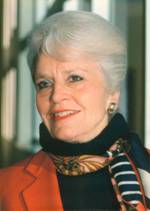 Marian C. Diamond, Ph.D., is Professor of Neuroscience and Anatomy at UC-Berkeleyand one of the world’s foremost researchers on neuroplasticity and enrichment since the 1960s. She is author of more than 150 scientific articles and 5 books, including Enriching Heredity (Free Press/Simon and Schuster, 1988) and The Magic Trees of the Mind (Plume, 1999). In particular, she is interested in studying the effects of the external environment, aging, and immune responses on the cerebral neocortex. Marian C. Diamond, Ph.D., is Professor of Neuroscience and Anatomy at UC-Berkeleyand one of the world’s foremost researchers on neuroplasticity and enrichment since the 1960s. She is author of more than 150 scientific articles and 5 books, including Enriching Heredity (Free Press/Simon and Schuster, 1988) and The Magic Trees of the Mind (Plume, 1999). In particular, she is interested in studying the effects of the external environment, aging, and immune responses on the cerebral neocortex. Alvaro Fernandez, CEO, SharpBrains. Alvaro Fernandez is SharpBrains’ co-founder and Chief Executive Officer. He has been quoted by The New York Times, The Wall Street Journal, CNN, and others. Alvaro is a member of the Global Agenda Councils initiative run by the World Economic Forum, and recently co-authored The SharpBrains Guide to Brain Fitness. Hestarted his career at McKinsey & Company and led the launch of several publishing and education companies in the US and Europe. Alvaro has an MBA and MA in Education from Stanford University, and enjoys teaching The Science of Brain Health at UC-Berkeley Osher Lifelong Learning Institute. Alvaro Fernandez, CEO, SharpBrains. Alvaro Fernandez is SharpBrains’ co-founder and Chief Executive Officer. He has been quoted by The New York Times, The Wall Street Journal, CNN, and others. Alvaro is a member of the Global Agenda Councils initiative run by the World Economic Forum, and recently co-authored The SharpBrains Guide to Brain Fitness. Hestarted his career at McKinsey & Company and led the launch of several publishing and education companies in the US and Europe. Alvaro has an MBA and MA in Education from Stanford University, and enjoys teaching The Science of Brain Health at UC-Berkeley Osher Lifelong Learning Institute.
 Thomas M. Warden is Assistant Vice President and Leader of Allstate’s Research and Planning Center (ARPC). He helps sets ARPC’s research agenda and manage its execution by 60-member ARPC staff, leading the development of significant innovations that contribute to Allstate’s profitable growth. He is a Chartered Financial Analyst and has an M.B.A. from Harvard University. Thomas M. Warden is Assistant Vice President and Leader of Allstate’s Research and Planning Center (ARPC). He helps sets ARPC’s research agenda and manage its execution by 60-member ARPC staff, leading the development of significant innovations that contribute to Allstate’s profitable growth. He is a Chartered Financial Analyst and has an M.B.A. from Harvard University.
 David Whitehouse, Chief Medical Officer, OptumHealth Behavioral Solutions. Dr. Whitehouse serves as OptumHealth Behavioral Solutions’ clinical lead as well as the company’s product strategist for medical/behavioral/pharmacy integration and future innovation. His distinguished career also includes positions as assistant clinical professor of psychiatry at both Dartmouth Medical School and Yale University School of Medicine, chief of psychiatry at St. Mary’s Hospital in Connecticut, and chief executive officer of Charles River Hospital in Massachusetts. Dr. Whitehouse holds master’s degrees from both Harvard University and Cambridge University, an M.B.A. from the University of Connecticut, an M.D. from Dartmouth Medical School, and a doctorate in theology from Harvard University. David Whitehouse, Chief Medical Officer, OptumHealth Behavioral Solutions. Dr. Whitehouse serves as OptumHealth Behavioral Solutions’ clinical lead as well as the company’s product strategist for medical/behavioral/pharmacy integration and future innovation. His distinguished career also includes positions as assistant clinical professor of psychiatry at both Dartmouth Medical School and Yale University School of Medicine, chief of psychiatry at St. Mary’s Hospital in Connecticut, and chief executive officer of Charles River Hospital in Massachusetts. Dr. Whitehouse holds master’s degrees from both Harvard University and Cambridge University, an M.B.A. from the University of Connecticut, an M.D. from Dartmouth Medical School, and a doctorate in theology from Harvard University.
 William Reichman, President, Baycrest. Dr. William E. Reichman is President and Chief Executive Officer of Baycrest, one of the world’s premier academic health sciences centres focused on aging and brain function. Dr. Reichman, an internationally-known expert in geriatric mental health and dementia is also Professor of Psychiatry on the Faculty of Medicine at the University of Toronto. He is a noted authority on the delivery of mental health and dementia services in nursing home settings. His previous academic activities have focused on the pharmacological treatment of Alzheimer’s disease and its associated apathy and negative symptoms. Dr. Reichman is a former President of the American Association for Geriatric Psychiatry and the Geriatric Mental Health Foundation. William Reichman, President, Baycrest. Dr. William E. Reichman is President and Chief Executive Officer of Baycrest, one of the world’s premier academic health sciences centres focused on aging and brain function. Dr. Reichman, an internationally-known expert in geriatric mental health and dementia is also Professor of Psychiatry on the Faculty of Medicine at the University of Toronto. He is a noted authority on the delivery of mental health and dementia services in nursing home settings. His previous academic activities have focused on the pharmacological treatment of Alzheimer’s disease and its associated apathy and negative symptoms. Dr. Reichman is a former President of the American Association for Geriatric Psychiatry and the Geriatric Mental Health Foundation.
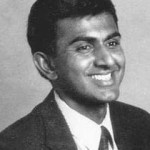 P Murali Doraiswamy, Biological Psychiatry Division Head, Duke University. Dr. Doraiswamy is a renowned expert on brain health, head of Duke University’s Biological Psychiatry division and a Senior Fellow at Duke’s Center for the Study of Aging. The author of more than two hundred scientific articles, Dr. Doraiswamy has served as an adviser to the Food and Drug Administration, the American Federation for Aging Research, the National Institutes of Aging, and the World Health Organization, as well as leading Alzheimer’s medical journals and advocacy groups. P Murali Doraiswamy, Biological Psychiatry Division Head, Duke University. Dr. Doraiswamy is a renowned expert on brain health, head of Duke University’s Biological Psychiatry division and a Senior Fellow at Duke’s Center for the Study of Aging. The author of more than two hundred scientific articles, Dr. Doraiswamy has served as an adviser to the Food and Drug Administration, the American Federation for Aging Research, the National Institutes of Aging, and the World Health Organization, as well as leading Alzheimer’s medical journals and advocacy groups.
 Steven Aldrich, CEO, Posit Science. Steven Aldrich is President and CEO of Posit Science, joining the company from Intuit where he created significant growth over 13 years in many roles. Most recently he was VP of Strategy and Innovation of the small business division where he accelerated growth by solving important customer problems through partnerships and acquisitions. He guided the QuickBooks Industry Solutions and QuickBooks Point of Sale teams to several successive years of significant employee engagement increases, customer experience improvements, and revenue growth. Steven was President of Quicken Insurance, a business he co-founded and sold to Intuit. He has worked in the investment banking division of Alex. Brown & Sons and for McKinsey & Company, completed his MBA at the Stanford Graduate School of Business, and he holds an AB in Physics from the University of North Carolina. Steven is an avid supporter of the arts, and President of the Board of the Bay Area Glass Institute. Steven Aldrich, CEO, Posit Science. Steven Aldrich is President and CEO of Posit Science, joining the company from Intuit where he created significant growth over 13 years in many roles. Most recently he was VP of Strategy and Innovation of the small business division where he accelerated growth by solving important customer problems through partnerships and acquisitions. He guided the QuickBooks Industry Solutions and QuickBooks Point of Sale teams to several successive years of significant employee engagement increases, customer experience improvements, and revenue growth. Steven was President of Quicken Insurance, a business he co-founded and sold to Intuit. He has worked in the investment banking division of Alex. Brown & Sons and for McKinsey & Company, completed his MBA at the Stanford Graduate School of Business, and he holds an AB in Physics from the University of North Carolina. Steven is an avid supporter of the arts, and President of the Board of the Bay Area Glass Institute.
 Shlomo Breznitz, President, CogniFit. Renowned cognitive psychologist, Professor Shlomo Breznitz has been engaged as visiting professor by numerous leading institutions including University of California at Berkeley, Stanford University, London School of Economics, and the US Department of Health and Human Services’ National Institutes of Health. Author of seven books and many scientific articles, Professor Breznitz is founding director of the Center for the Study of Psychological Stress at the University of Haifa, where he also served as Lady Davis Professor of Psychology, Rector, and University President. His acclaimed DriveFit™ training program, which was the first CogniFit commercial product, received the UK Prince Michael Road Safety Award. Shlomo Breznitz, President, CogniFit. Renowned cognitive psychologist, Professor Shlomo Breznitz has been engaged as visiting professor by numerous leading institutions including University of California at Berkeley, Stanford University, London School of Economics, and the US Department of Health and Human Services’ National Institutes of Health. Author of seven books and many scientific articles, Professor Breznitz is founding director of the Center for the Study of Psychological Stress at the University of Haifa, where he also served as Lady Davis Professor of Psychology, Rector, and University President. His acclaimed DriveFit™ training program, which was the first CogniFit commercial product, received the UK Prince Michael Road Safety Award.
 Jerri Edwards, Associate Professor at the School of Aging Studies University of South Florida. Dr. Edwards’ research is aimed toward discovering how cognitive abilities can be maintained and even enhanced with advancing age. Ultimately, the goals of Dr. Edwards’ research are to extend the mobility and independence of older adults thereby improving their quality of life. She is particularly interested in how cognitive interventions may help older adults to avoid or at least delay functional difficulties and thereby maintain independence. Much of her work has focused upon the functional ability of driving including assessing driving fitness among older adults and remediation of cognitive decline that results in driving difficulties. Jerri Edwards, Associate Professor at the School of Aging Studies University of South Florida. Dr. Edwards’ research is aimed toward discovering how cognitive abilities can be maintained and even enhanced with advancing age. Ultimately, the goals of Dr. Edwards’ research are to extend the mobility and independence of older adults thereby improving their quality of life. She is particularly interested in how cognitive interventions may help older adults to avoid or at least delay functional difficulties and thereby maintain independence. Much of her work has focused upon the functional ability of driving including assessing driving fitness among older adults and remediation of cognitive decline that results in driving difficulties.
![Peter_Portraits_019[1] Peter_Portraits_019[1]](https://sharpbrains.com/wp-content/uploads/2009/10/Peter_Portraits_01911-150x150.jpg) Peter Christianson, President of Young Drivers of Canada. Peter joined Young Drivers as a YD franchise owner in Hamilton in 1975, becoming the Director of Centre Operations in 1979 and YD President in 1984. Young Drivers of Canada today is Canada’s largest driver training organization, having grown to over 140 classrooms nationally and taught over one million novice drivers. Peter has managed YD curriculum development for the past 30 years and in 2003 he acquired the Canadian rights for ‘CogniFit’ driving programs that focus on improving the cognitive skills required to drive safely. Peter Christianson, President of Young Drivers of Canada. Peter joined Young Drivers as a YD franchise owner in Hamilton in 1975, becoming the Director of Centre Operations in 1979 and YD President in 1984. Young Drivers of Canada today is Canada’s largest driver training organization, having grown to over 140 classrooms nationally and taught over one million novice drivers. Peter has managed YD curriculum development for the past 30 years and in 2003 he acquired the Canadian rights for ‘CogniFit’ driving programs that focus on improving the cognitive skills required to drive safely.
 Kunal Sarkar, CEO, Lumos Labs. Kunal is a founding member of Lumos Labs and leads the operations and marketing team. Previously he was a Vice President at private equity fund McCown De Leeuw and Co.(MDC). At MDC Kunal was integrally involved in the strategy, operations and the financial recapitalization of a number of portfolio companies including serving on the board of On Stage Entertainment and USBuild, and the IPO of StoneMor (STON). Prior to MDC, he worked in the Strategic Planning and Development group at the Walt Disney Company. Kunal graduated magna cum laude from Princeton University with a B.A. in Economics with a minor in Finance. Kunal Sarkar, CEO, Lumos Labs. Kunal is a founding member of Lumos Labs and leads the operations and marketing team. Previously he was a Vice President at private equity fund McCown De Leeuw and Co.(MDC). At MDC Kunal was integrally involved in the strategy, operations and the financial recapitalization of a number of portfolio companies including serving on the board of On Stage Entertainment and USBuild, and the IPO of StoneMor (STON). Prior to MDC, he worked in the Strategic Planning and Development group at the Walt Disney Company. Kunal graduated magna cum laude from Princeton University with a B.A. in Economics with a minor in Finance.
 Elizabeth Zelinski, Professor at USC Davis School of Gerontology. Elizabeth Zelinski, Ph.D., is a Professor of Gerontology and Psychology at the Leonard Davis School of Gerontology. Dr. Zelinski has joint appointments in the Psychology Department, Neurosciences and the Study of Women and Men in Society (SWMS) Programs. Dr. Zelinski graduated summa cum laude from Pace University and received her graduate degrees in psychology, with a specialization in aging, from the University of Southern California. Dr. Zelinski is the principal investigator of the Long Beach Longitudinal Study. Elizabeth Zelinski, Professor at USC Davis School of Gerontology. Elizabeth Zelinski, Ph.D., is a Professor of Gerontology and Psychology at the Leonard Davis School of Gerontology. Dr. Zelinski has joint appointments in the Psychology Department, Neurosciences and the Study of Women and Men in Society (SWMS) Programs. Dr. Zelinski graduated summa cum laude from Pace University and received her graduate degrees in psychology, with a specialization in aging, from the University of Southern California. Dr. Zelinski is the principal investigator of the Long Beach Longitudinal Study.
 Dan Michel, CEO, Dakim. Dan spent more than 30 years helping some of America’s most successful companies market and advertise their brands. Over the last twenty years, he was Chief Operating Officer of BBDO Worldwide/Los Angeles, President of Marketing of Columbia Pictures, and President and Co-Creative Director of his own creative advertising agency, Michel/Russo, Inc. Dan’s father was diagnosed with Alzheimer’s Disease in 1993. Based upon learning about the disease, and having gained firsthand experience participating in activities with his father, he recognized the therapeutic and emotional value of cognitively stimulating activities, and the pressing need for more effective means of providing this line of therapy for sufferers of Alzheimer’s Disease and related dementia. Dan earned a B.A. from Claremont Men’s College (now Claremont McKenna College) and an M.S. from Northwestern University. Dan Michel, CEO, Dakim. Dan spent more than 30 years helping some of America’s most successful companies market and advertise their brands. Over the last twenty years, he was Chief Operating Officer of BBDO Worldwide/Los Angeles, President of Marketing of Columbia Pictures, and President and Co-Creative Director of his own creative advertising agency, Michel/Russo, Inc. Dan’s father was diagnosed with Alzheimer’s Disease in 1993. Based upon learning about the disease, and having gained firsthand experience participating in activities with his father, he recognized the therapeutic and emotional value of cognitively stimulating activities, and the pressing need for more effective means of providing this line of therapy for sufferers of Alzheimer’s Disease and related dementia. Dan earned a B.A. from Claremont Men’s College (now Claremont McKenna College) and an M.S. from Northwestern University.
 Elkhonon Goldberg, Chief Scientific Advisor, SharpBrains. Dr. Goldberg is an author, scientist, educator and clinician, internationally renowned for his clinical work, research, writings and teaching in neuropsychology and cognitive neuroscience. He is a Clinical Professor of Neurology at New York University School of Medicine, and Diplomate of The American Board of Professional Psychology in Clinical Neuropsychology. A student and close associate of the great neuropsychologist Alexander Luria, Dr. Goldberg has continued to advance Luria’s scientific and clinical tradition, and written popular science books such as The Executive Brain: Frontal Lobes and The Civilized Mind, The Wisdom Paradox: How Your Mind Can Grow Stronger As Your Brain Grows Older, and recently co-authored The SharpBrains Guide to Brain Fitness. Elkhonon Goldberg, Chief Scientific Advisor, SharpBrains. Dr. Goldberg is an author, scientist, educator and clinician, internationally renowned for his clinical work, research, writings and teaching in neuropsychology and cognitive neuroscience. He is a Clinical Professor of Neurology at New York University School of Medicine, and Diplomate of The American Board of Professional Psychology in Clinical Neuropsychology. A student and close associate of the great neuropsychologist Alexander Luria, Dr. Goldberg has continued to advance Luria’s scientific and clinical tradition, and written popular science books such as The Executive Brain: Frontal Lobes and The Civilized Mind, The Wisdom Paradox: How Your Mind Can Grow Stronger As Your Brain Grows Older, and recently co-authored The SharpBrains Guide to Brain Fitness.
 Michael Cole, Chief Executive Officer, Vivity Labs. Mr. Cole is an experienced executive with a strong background in strategic business development. He is the founder and CEO of Vivity Labs, the developer of brain fitness destination Fitbrains.com, featuring a large collection of top-quality casual brain games, progress tracking, awards and community features. Mr. Cole has more than 12 years of experience launching innovative consumer companies in the US, Europe and Japan. Mr. Cole received his MBA from EM Lyon in France and his BA from SFU in Vancouver, Canada. Michael Cole, Chief Executive Officer, Vivity Labs. Mr. Cole is an experienced executive with a strong background in strategic business development. He is the founder and CEO of Vivity Labs, the developer of brain fitness destination Fitbrains.com, featuring a large collection of top-quality casual brain games, progress tracking, awards and community features. Mr. Cole has more than 12 years of experience launching innovative consumer companies in the US, Europe and Japan. Mr. Cole received his MBA from EM Lyon in France and his BA from SFU in Vancouver, Canada.
 Evian Gordon, CEO, Brain Resource. Dr Evian Gordon, PhD, MBBCh, is the Chairman and Chief Executive Officer of Brain Resource. Dr Gordon has over 20 years of experience in human brain research. He was the founding director of the Brain Dynamics Centre at Westmead Hospital and a senior lecturer in the Department of Psychological Medicine at the University of Sydney. He edited the first book on “Integrative Neuroscience” and has more than 160 publications. Evian Gordon, CEO, Brain Resource. Dr Evian Gordon, PhD, MBBCh, is the Chairman and Chief Executive Officer of Brain Resource. Dr Gordon has over 20 years of experience in human brain research. He was the founding director of the Brain Dynamics Centre at Westmead Hospital and a senior lecturer in the Department of Psychological Medicine at the University of Sydney. He edited the first book on “Integrative Neuroscience” and has more than 160 publications.
 Misha Pavel, Ph.D., Biomedical Engineering Division Head, Oregon Health & Science University. Dr. Pavel was born in the former Czechoslovakia and received his Ph.D. in Experimental Psychology from New York University and his M.S. in Electrical Engineering from Stanford University. He joined OGI in 1993. During a leave of absence, Dr. Pavel was a Technology Leader at AT&T Laboratories in Menlo Park, California, where he was developing networked, wireless and mobile applications for information access and context-aware interactions. Previously, Dr. Pavel was a member of the Technical Staff at Bell Laboratories. Dr. Pavel is the author of more than 80 technical and scientific papers. Misha Pavel, Ph.D., Biomedical Engineering Division Head, Oregon Health & Science University. Dr. Pavel was born in the former Czechoslovakia and received his Ph.D. in Experimental Psychology from New York University and his M.S. in Electrical Engineering from Stanford University. He joined OGI in 1993. During a leave of absence, Dr. Pavel was a Technology Leader at AT&T Laboratories in Menlo Park, California, where he was developing networked, wireless and mobile applications for information access and context-aware interactions. Previously, Dr. Pavel was a member of the Technical Staff at Bell Laboratories. Dr. Pavel is the author of more than 80 technical and scientific papers.
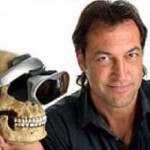 Albert “Skip” Rizzo, Co-Director VR Psych Lab at USC’s School of Gerontology. Dr. Rizzo is a Research Scientist at the University of Southern California Institute for Creative Technologies and has a faculty appointment with the USC School of Gerontology. Dr. Rizzo conducts research on the design, development and evaluation of Virtual Reality systems targeting the areas of clinical assessment, treatment and rehabilitation. His cognitive work has addressed the use of VR applications to test and train attention, memory, visuospatial abilities and executive function. He received his Ph.D. in Clinical Psychology from the State University of New York at Binghamton. Albert “Skip” Rizzo, Co-Director VR Psych Lab at USC’s School of Gerontology. Dr. Rizzo is a Research Scientist at the University of Southern California Institute for Creative Technologies and has a faculty appointment with the USC School of Gerontology. Dr. Rizzo conducts research on the design, development and evaluation of Virtual Reality systems targeting the areas of clinical assessment, treatment and rehabilitation. His cognitive work has addressed the use of VR applications to test and train attention, memory, visuospatial abilities and executive function. He received his Ph.D. in Clinical Psychology from the State University of New York at Binghamton.
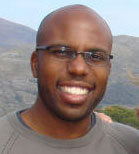 Muki Hansteen-Izora, Senior Design Researcher and Strategist with Intel’s Digital Health Group. Muki is also the Intel lead and co-PI for the Technology Research for Independent Living (TRIL) Centre’s Cognitive Function research strand, which is investigating how interactive media and gaming technologies can support cognition in older populations. Prior to joining Intel, Muki served as a lead researcher at Philips Research Labs. He holds a degree in Cultural Anthropology from the University of California at Santa Cruz, and completed his graduate training in Learning, Design, and Technology at Stanford University. Muki Hansteen-Izora, Senior Design Researcher and Strategist with Intel’s Digital Health Group. Muki is also the Intel lead and co-PI for the Technology Research for Independent Living (TRIL) Centre’s Cognitive Function research strand, which is investigating how interactive media and gaming technologies can support cognition in older populations. Prior to joining Intel, Muki served as a lead researcher at Philips Research Labs. He holds a degree in Cultural Anthropology from the University of California at Santa Cruz, and completed his graduate training in Learning, Design, and Technology at Stanford University.
 Margaret Morris, Senior Researcher in Intel’s Digital Health Group. Margaret studies the ways that emerging technologies can enhance mental and physical wellbeing. She conducts ethnographic research to identify needs and works with engineers to develop and evaluate exploratory prototypes. Prior to joining Intel in 2002, she studied technology adoption in Sapient’s Experience Modelling group. Margie completed her Ph.D. in Clinical Psychology with a minor in Behavioural Neuroscience at the University of New Mexico, her clinical internship at the San Francisco VA Medical Centre, and her postdoctoral fellowship at Stanford University. She has a B.A. in English from Haverford College. Margaret Morris, Senior Researcher in Intel’s Digital Health Group. Margaret studies the ways that emerging technologies can enhance mental and physical wellbeing. She conducts ethnographic research to identify needs and works with engineers to develop and evaluate exploratory prototypes. Prior to joining Intel in 2002, she studied technology adoption in Sapient’s Experience Modelling group. Margie completed her Ph.D. in Clinical Psychology with a minor in Behavioural Neuroscience at the University of New Mexico, her clinical internship at the San Francisco VA Medical Centre, and her postdoctoral fellowship at Stanford University. She has a B.A. in English from Haverford College.
|
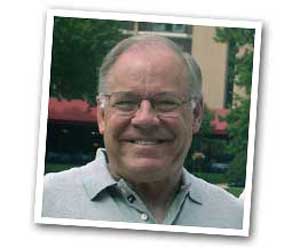 Charles (Chuck) House is the executive director of Media X, Stanford University’s Industry Affiliate research program on media and technology, and a senior research scholar in the Human Sciences and Technology Advanced Research division at Stanford. Previously, he was the director of Societal Impact of Technology for Intel Corporation, and the first Director of Intel’s Virtual Research Collaboratory. He recently co-authored The HP Phenomenon: Innovation and Business Transformation (Stanford University Press, October 2009). Charles (Chuck) House is the executive director of Media X, Stanford University’s Industry Affiliate research program on media and technology, and a senior research scholar in the Human Sciences and Technology Advanced Research division at Stanford. Previously, he was the director of Societal Impact of Technology for Intel Corporation, and the first Director of Intel’s Virtual Research Collaboratory. He recently co-authored The HP Phenomenon: Innovation and Business Transformation (Stanford University Press, October 2009).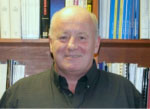 Keith Wesnes, Practice Leader, United BioSource Corporation. In 1986 Professor Wesnes founded Cognitive Drug Research (acquired in 2009 by United BioSource) to offer this system as a service in clinical trials. Professor Wesnes has published over 270 peer-reviewed research articles as well as more than 20 chapters and literature reviews. He holds Professorships at the Human Cognitive Neuroscience Unit at Northumbria University, Newcastle, UK and the Brain Sciences Institute at Swinburne University, Melbourne, Australia. Professor Wesnes was made Fellow of the British Psychological Society in 1989 and Fellow of the Royal Statistical Society in 1983. He earned his BSc from Reading University in 1973 with a First Class Honors in experimental psychology. Keith Wesnes, Practice Leader, United BioSource Corporation. In 1986 Professor Wesnes founded Cognitive Drug Research (acquired in 2009 by United BioSource) to offer this system as a service in clinical trials. Professor Wesnes has published over 270 peer-reviewed research articles as well as more than 20 chapters and literature reviews. He holds Professorships at the Human Cognitive Neuroscience Unit at Northumbria University, Newcastle, UK and the Brain Sciences Institute at Swinburne University, Melbourne, Australia. Professor Wesnes was made Fellow of the British Psychological Society in 1989 and Fellow of the Royal Statistical Society in 1983. He earned his BSc from Reading University in 1973 with a First Class Honors in experimental psychology.
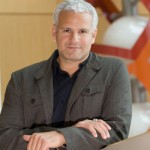 Adam Gazzaley, Director of the Neuroscience Imaging Center at the University of California, San Francisco. Dr. Gazzaley is a faculty member in the Neurology, Physiology and Psychiatry departments, and principal investigator of a cognitive neuroscience laboratory that conducts research on the neural mechanisms of attention and memory. A major focus of his research has been to expand our understanding of the alterations in the aging brain that lead to cognitive decline. His most recent studies explore how we can preserve and improve attention and memory as we get older. He has received many awards and honors for his research, including the 1997 Cortical Scholar Award, Pfizer/AFAR Innovations in Aging Award and the Ellison Foundation New Scholar Award in Aging. Adam Gazzaley, Director of the Neuroscience Imaging Center at the University of California, San Francisco. Dr. Gazzaley is a faculty member in the Neurology, Physiology and Psychiatry departments, and principal investigator of a cognitive neuroscience laboratory that conducts research on the neural mechanisms of attention and memory. A major focus of his research has been to expand our understanding of the alterations in the aging brain that lead to cognitive decline. His most recent studies explore how we can preserve and improve attention and memory as we get older. He has received many awards and honors for his research, including the 1997 Cortical Scholar Award, Pfizer/AFAR Innovations in Aging Award and the Ellison Foundation New Scholar Award in Aging.
 Michel Noir, CEO, Scientific Brain Training/ HappyNeuron. Dr. Noir received his Ph.D. in Educational Science and post graduate diploma in Cognitive Psychology from the University of Lyon, France. He received his Graduate Diploma, Advanced Graduate Diploma, and Master’s in Public Law from Paris Law Faculty. He also holds an Advanced Graduate Diploma in Political Science.. Mr. Noir has authored over 15 books on a variety of educational and brain training topics and games. Michel Noir, CEO, Scientific Brain Training/ HappyNeuron. Dr. Noir received his Ph.D. in Educational Science and post graduate diploma in Cognitive Psychology from the University of Lyon, France. He received his Graduate Diploma, Advanced Graduate Diploma, and Master’s in Public Law from Paris Law Faculty. He also holds an Advanced Graduate Diploma in Political Science.. Mr. Noir has authored over 15 books on a variety of educational and brain training topics and games.
 Dr. Laurence Hirshberg directs the NeuroDevelopment Center and serves on the faculty of the Department of Psychiatry and Human Behavior of the Brown University Medical School as Clinical Assistant Professor. The NeuroDevelopment Center is one of the 20 research sites worldwide participating in the largest study of neurophysiological markers for depression. Dr. Hirshberg is a licensed clinical psychologist and certified in EEG biofeedback by the Biofeedback Certification Institute of America, and recently served as Guest Editor and contributor to a special issue of Child and Adolescent Psychiatric Clinics of North America devoted to emerging interventions in applied neuroscience, including neurofeedback and other brain based interventions. Dr. Laurence Hirshberg directs the NeuroDevelopment Center and serves on the faculty of the Department of Psychiatry and Human Behavior of the Brown University Medical School as Clinical Assistant Professor. The NeuroDevelopment Center is one of the 20 research sites worldwide participating in the largest study of neurophysiological markers for depression. Dr. Hirshberg is a licensed clinical psychologist and certified in EEG biofeedback by the Biofeedback Certification Institute of America, and recently served as Guest Editor and contributor to a special issue of Child and Adolescent Psychiatric Clinics of North America devoted to emerging interventions in applied neuroscience, including neurofeedback and other brain based interventions.
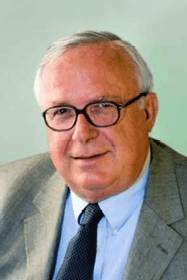 Michael Merzenich, Emeritus Professor, UCSF. For more than three decades, Dr. Merzenich has been a leading pioneer in brain plasticity research. In the late 1980s, Dr. Merzenich was on the team that invented the cochlear implant, now distributed by Advanced Bionics. In 1996, Dr. Merzenich was the founding CEO of Scientific Learning Corporation (Nasdaq: SCIL), and in 2004 became co-founder and Chief Scientific Officer of Posit Science. Dr. Merzenich has published more than 200 articles, received numerous awards and prizes, and been granted more than 50 patents for his work. His work was featured on the PBS specials “The Brain Fitness Program” and “Brain Fitness 2: Sight and Sound.” Dr. Merzenich earned his BS degree at the University of Portland and his PhD at Johns Hopkins. He retired from his long career as Francis A. Sooy Professor and Co-Director of the Keck Center for Integrative Neuroscience at the University of California at San Francisco in 2007. He was elected to the National Academy of Sciences in 1999 and will be inaugurated into the Institute of Medicine this year. Michael Merzenich, Emeritus Professor, UCSF. For more than three decades, Dr. Merzenich has been a leading pioneer in brain plasticity research. In the late 1980s, Dr. Merzenich was on the team that invented the cochlear implant, now distributed by Advanced Bionics. In 1996, Dr. Merzenich was the founding CEO of Scientific Learning Corporation (Nasdaq: SCIL), and in 2004 became co-founder and Chief Scientific Officer of Posit Science. Dr. Merzenich has published more than 200 articles, received numerous awards and prizes, and been granted more than 50 patents for his work. His work was featured on the PBS specials “The Brain Fitness Program” and “Brain Fitness 2: Sight and Sound.” Dr. Merzenich earned his BS degree at the University of Portland and his PhD at Johns Hopkins. He retired from his long career as Francis A. Sooy Professor and Co-Director of the Keck Center for Integrative Neuroscience at the University of California at San Francisco in 2007. He was elected to the National Academy of Sciences in 1999 and will be inaugurated into the Institute of Medicine this year.
 Torkel Klingberg, Professor Cognitive Neuroscience, Karolinska Institute. Dr. Klingberg is a professor of cognitive neuroscience at the Stockholm Brain Institute, which is part of Sweden’s Karolinska Institute.In 2001, Klingberg founded Cogmed to develop and produce working memory training programs based on his breakthrough research demonstrating that the working memory can be improved through training. Klingberg has gained recognition in the scientific community and the international media. He has received distinctions from the International Neuropsychological Association and has been named “Future Research Leader” by the Swedish Foundation for Strategic Research. In 2006, he was awarded the Philip’s Nordic Prize for outstanding research in the field of Neuropsychiatry. Klingberg also holds a research position at the Royal Swedish Academy of Sciences. Torkel Klingberg, Professor Cognitive Neuroscience, Karolinska Institute. Dr. Klingberg is a professor of cognitive neuroscience at the Stockholm Brain Institute, which is part of Sweden’s Karolinska Institute.In 2001, Klingberg founded Cogmed to develop and produce working memory training programs based on his breakthrough research demonstrating that the working memory can be improved through training. Klingberg has gained recognition in the scientific community and the international media. He has received distinctions from the International Neuropsychological Association and has been named “Future Research Leader” by the Swedish Foundation for Strategic Research. In 2006, he was awarded the Philip’s Nordic Prize for outstanding research in the field of Neuropsychiatry. Klingberg also holds a research position at the Royal Swedish Academy of Sciences.
 Joshua Steinerman, Asst. Professor, Albert Einstein College of Medicine – Montefiore Medical Center. Educated and trained at Harvard, Yale, Columbia, and the State University of New York, Dr. Steinerman is a behavioral neurologist and neuropsychiatrist who combines patient care with clinical research in brain aging and cognition. Dr. Steinerman co-directs the Einstein-Montefiore Center for Healthy Brain Aging and is the scientific founder of ProGevity Neuroscience. Joshua Steinerman, Asst. Professor, Albert Einstein College of Medicine – Montefiore Medical Center. Educated and trained at Harvard, Yale, Columbia, and the State University of New York, Dr. Steinerman is a behavioral neurologist and neuropsychiatrist who combines patient care with clinical research in brain aging and cognition. Dr. Steinerman co-directs the Einstein-Montefiore Center for Healthy Brain Aging and is the scientific founder of ProGevity Neuroscience.
 Yaakov Stern, Cognitive Neuroscience Division Leader, Columbia University. Dr. Stern directs the Cognitive Neuroscience Division of the Sergievsky Center and is Director of Neuropsychology for the Memory Disorders Clinic at the New York State Psychiatric Institute. He also directs the post-doctoral training program Neuropsychology and Cognition in Aging, and is a Professor of Clinical Neuropsychology in the Departments of Neurology, Psychiatry, and Psychology, as well as the in Sergievsky Center and the Taub Institute for the Research on Alzheimer’s Disease and the Aging Brain, at Columbia University College of Physicians and Surgeons. Yaakov Stern, Cognitive Neuroscience Division Leader, Columbia University. Dr. Stern directs the Cognitive Neuroscience Division of the Sergievsky Center and is Director of Neuropsychology for the Memory Disorders Clinic at the New York State Psychiatric Institute. He also directs the post-doctoral training program Neuropsychology and Cognition in Aging, and is a Professor of Clinical Neuropsychology in the Departments of Neurology, Psychiatry, and Psychology, as well as the in Sergievsky Center and the Taub Institute for the Research on Alzheimer’s Disease and the Aging Brain, at Columbia University College of Physicians and Surgeons.
 Kenneth Kosik, Co-Director, UC Santa Barbara Neuroscience Research Institute. Dr. Kosik received his M.D. degree in 1976 from the Medical College of Pennsylvania and completed a neurology residency from Tufts New England Medical Center where he served as chief resident in 1979. From 1980 until 2005 he held various appointments at the Harvard Medical School where he became Professor of Neurology and Neuroscience in 1996. In the fall of 2004 he assumed the co-directorship of the Neuroscience Research Institute and the Harriman Chair in the Department of Molecular, Cellular and Developmental Biology at the University of California Santa Barbara. He has received multiple awards, including a Whitaker Health Sciences Award from Massachusetts Institute of Technology, the Derek Denny-Brown Neurological Scholar Award from the American Neurological Association, the Zenith Award from the Alzheimer’s Association, and a NASA Group Achievement Award to the Neurolab Science Team. Kenneth Kosik, Co-Director, UC Santa Barbara Neuroscience Research Institute. Dr. Kosik received his M.D. degree in 1976 from the Medical College of Pennsylvania and completed a neurology residency from Tufts New England Medical Center where he served as chief resident in 1979. From 1980 until 2005 he held various appointments at the Harvard Medical School where he became Professor of Neurology and Neuroscience in 1996. In the fall of 2004 he assumed the co-directorship of the Neuroscience Research Institute and the Harriman Chair in the Department of Molecular, Cellular and Developmental Biology at the University of California Santa Barbara. He has received multiple awards, including a Whitaker Health Sciences Award from Massachusetts Institute of Technology, the Derek Denny-Brown Neurological Scholar Award from the American Neurological Association, the Zenith Award from the Alzheimer’s Association, and a NASA Group Achievement Award to the Neurolab Science Team.
 Jonas Jendi, CEO, Cogmed. Jonas Jendi joined Cogmed in 2001 as its chief executive officer. In 2007, Jendi opened Cogmed’s North American headquarters in Naperville, IL, where he is now based. Prior to Cogmed, Jendi provided strategic consulting for the Boston Consulting Group in Stockholm and Paris, and held management and consulting roles for various technology start-ups. He holds a MS from the Stockholm School of Economics. Jonas Jendi, CEO, Cogmed. Jonas Jendi joined Cogmed in 2001 as its chief executive officer. In 2007, Jendi opened Cogmed’s North American headquarters in Naperville, IL, where he is now based. Prior to Cogmed, Jendi provided strategic consulting for the Boston Consulting Group in Stockholm and Paris, and held management and consulting roles for various technology start-ups. He holds a MS from the Stockholm School of Economics.
 Holly Jimison, Assoc. Professor, Oregon Health & Science University. Dr. Jimison is an Associate Professor of Medical Informatics and Clinical Epidemiology at Oregon Health & Science University. She teaches courses in Consumer Health Informatics and Ethics, Legal, and Social Issues in Medical Informatics. Holly received her doctorate in Medical Information Sciences from Stanford University, with dissertation work on using computer decision models to tailor patient education materials. Her research interests include technology for successful aging, home health monitoring, user models for adaptive interfaces for consumer health information, and cognitive monitoring through computer interactions. Holly Jimison, Assoc. Professor, Oregon Health & Science University. Dr. Jimison is an Associate Professor of Medical Informatics and Clinical Epidemiology at Oregon Health & Science University. She teaches courses in Consumer Health Informatics and Ethics, Legal, and Social Issues in Medical Informatics. Holly received her doctorate in Medical Information Sciences from Stanford University, with dissertation work on using computer decision models to tailor patient education materials. Her research interests include technology for successful aging, home health monitoring, user models for adaptive interfaces for consumer health information, and cognitive monitoring through computer interactions.
 Jesse Wright, Director Depression Center, University of Louisville. Jesse H. Wright, M.D., Ph.D., is a professor in the Department of Psychiatry and Behavioral Sciences at the University of Louisville, where he also serves as associate chairman for Academic Affairs and director of the Depression Center. Additionally, he is the medical director of the Norton Psychiatric Center and a policy advisor for the Depression and Bipolar Support Alliance (DBSA). Dr. Wright is the principal author of “Good Days Ahead: The Interactive Program for Depression and Anxiety,” the first multimedia computer program for treatment of depression. Dr. Wright was the founding president of the Academy of Cognitive Therapy and is a past president of the Kentucky Psychiatric Association. He also is a fellow of the American College of Psychiatrists. He graduated from Jefferson Medical College in Philadelphia and completed his residency training in psychiatry at the University of Michigan. Jesse Wright, Director Depression Center, University of Louisville. Jesse H. Wright, M.D., Ph.D., is a professor in the Department of Psychiatry and Behavioral Sciences at the University of Louisville, where he also serves as associate chairman for Academic Affairs and director of the Depression Center. Additionally, he is the medical director of the Norton Psychiatric Center and a policy advisor for the Depression and Bipolar Support Alliance (DBSA). Dr. Wright is the principal author of “Good Days Ahead: The Interactive Program for Depression and Anxiety,” the first multimedia computer program for treatment of depression. Dr. Wright was the founding president of the Academy of Cognitive Therapy and is a past president of the Kentucky Psychiatric Association. He also is a fellow of the American College of Psychiatrists. He graduated from Jefferson Medical College in Philadelphia and completed his residency training in psychiatry at the University of Michigan.
 Tim Chang, Partner, Norwest Venture Partners. Tim brings a combination of operational, technical and international business experience to Norwest Venture Partners. Tim focuses on investments in mobile, gaming, digital media, and also leads NVP’s investment practice in China and Asia-Pacific. Tim led NVP’s investments in and joined the boards of directors of ngmoco, Lumos Labs, Brite Semiconductor and 3jam. Tim spent more than five years working in Japan. He was a product manager at Gateway Inc and a development engineer for General Motors. Tim holds an MBA from Stanford Graduate School of Business, and an MS in electrical engineering/system engineering as well as a BS in electrical engineering from the University of Michigan. Tim Chang, Partner, Norwest Venture Partners. Tim brings a combination of operational, technical and international business experience to Norwest Venture Partners. Tim focuses on investments in mobile, gaming, digital media, and also leads NVP’s investment practice in China and Asia-Pacific. Tim led NVP’s investments in and joined the boards of directors of ngmoco, Lumos Labs, Brite Semiconductor and 3jam. Tim spent more than five years working in Japan. He was a product manager at Gateway Inc and a development engineer for General Motors. Tim holds an MBA from Stanford Graduate School of Business, and an MS in electrical engineering/system engineering as well as a BS in electrical engineering from the University of Michigan.
 Lisa Schoonerman, Co-founder, vibrantBrains. Lisa held a variety of technical and editorial positions with the Thomson Corporation in the Legal Publishing division (now ThomsonReuters), beginning in Rochester, NY and then coming to San Francisco to work for what was then Bancroft Whitney. Lisa’s work for Thomson included a 3‑year assignment in the UK, where she was Editorial Director of the group providing content for Westlaw UK, the first international application of the Westlaw database. Lisa Schoonerman, Co-founder, vibrantBrains. Lisa held a variety of technical and editorial positions with the Thomson Corporation in the Legal Publishing division (now ThomsonReuters), beginning in Rochester, NY and then coming to San Francisco to work for what was then Bancroft Whitney. Lisa’s work for Thomson included a 3‑year assignment in the UK, where she was Editorial Director of the group providing content for Westlaw UK, the first international application of the Westlaw database.
Richard Levinson, President, Attention Control Systems. In the early 1990s, as a robotics researcher at NASA-Ames Research Center in Mountain View, California, Mr. Levinson began studying the neuropsychology of human planning in order to increase autonomy for NASA robots. In 1995, he proposed a computer model of human frontal lobe function in an article published in the Annals of the New York Academy of Sciences. That computer model of executive functions led to the development of PEAT, a powerful cuing and scheduling treatment currently available to people with a wide range of cognitive and attention disorders. Levinson has publications related to PEAT in both computer science and neuropsychology journals, and has pioneered an interdisciplinary approach to cognitive rehabilitation that has drawn widespread attention.
 Veronika Litinski, Director, MaRS Venture Group. Veronika Litinski coordinates the MaRS venture services programs delivered to entrepreneurs, investors and high-growth companies. She also provides advisory services to entrepreneurs and high growth companies, with a special focus on life sciences markets, specializing in corporate finance and business development. Veronika started her career as a research scientist at Lawrence Livermore Lab in Berkeley, California. Transitioning to the business world, Veronika founded a medical journal, earned her MBA (Finance) at the University of San Francisco, and worked in corporate finance with Union Bank and GATX Financial Corporation. Veronika is a member of Financial Women Association (FWA) and Financial Executives International (FEI). Veronika Litinski, Director, MaRS Venture Group. Veronika Litinski coordinates the MaRS venture services programs delivered to entrepreneurs, investors and high-growth companies. She also provides advisory services to entrepreneurs and high growth companies, with a special focus on life sciences markets, specializing in corporate finance and business development. Veronika started her career as a research scientist at Lawrence Livermore Lab in Berkeley, California. Transitioning to the business world, Veronika founded a medical journal, earned her MBA (Finance) at the University of San Francisco, and worked in corporate finance with Union Bank and GATX Financial Corporation. Veronika is a member of Financial Women Association (FWA) and Financial Executives International (FEI).
 Charles Jennings, Director of the new McGovern Institute Neurotechnology (MINT) Program, MIT. Following postdoctoral studies in developmental biology at Harvard and MIT, he became an editor with the scientific journal Nature. He was the founding editor of Nature Neuroscience, widely considered a leading journal in its field. More recently, he was the first executive director of the Harvard Stem Cell Institute, and he continues to serve as an advisor to the Connecticut Stem Cell Research Program. Charles Jennings, Director of the new McGovern Institute Neurotechnology (MINT) Program, MIT. Following postdoctoral studies in developmental biology at Harvard and MIT, he became an editor with the scientific journal Nature. He was the founding editor of Nature Neuroscience, widely considered a leading journal in its field. More recently, he was the first executive director of the Harvard Stem Cell Institute, and he continues to serve as an advisor to the Connecticut Stem Cell Research Program.
 Stephen Macknik, Director of the Laboratory of Behavioral Neurophysiology, Barrow Neurological Institute. Dr. Macknik’s research and scientific outreach activities have been featured in the New York Times, The Wall Street Journal,The Chicago Tribune, The Boston Globe, NPR, and Der Spiegel, among hundreds of media stories. He is board member of Scientific American, where he has published several feature articles and for which he published a free monthly online column on the neuroscience of illusions. Stephen Macknik, Director of the Laboratory of Behavioral Neurophysiology, Barrow Neurological Institute. Dr. Macknik’s research and scientific outreach activities have been featured in the New York Times, The Wall Street Journal,The Chicago Tribune, The Boston Globe, NPR, and Der Spiegel, among hundreds of media stories. He is board member of Scientific American, where he has published several feature articles and for which he published a free monthly online column on the neuroscience of illusions.
|
 Marian C. Diamond, Ph.D., is Professor of Neuroscience and Anatomy at UC-Berkeleyand one of the world’s foremost researchers on neuroplasticity and enrichment since the 1960s. She is author of more than 150 scientific articles and 5 books, including Enriching Heredity (Free Press/Simon and Schuster, 1988) and The Magic Trees of the Mind (Plume, 1999). In particular, she is interested in studying the effects of the external environment, aging, and immune responses on the cerebral neocortex.
Marian C. Diamond, Ph.D., is Professor of Neuroscience and Anatomy at UC-Berkeleyand one of the world’s foremost researchers on neuroplasticity and enrichment since the 1960s. She is author of more than 150 scientific articles and 5 books, including Enriching Heredity (Free Press/Simon and Schuster, 1988) and The Magic Trees of the Mind (Plume, 1999). In particular, she is interested in studying the effects of the external environment, aging, and immune responses on the cerebral neocortex. Alvaro Fernandez, CEO, SharpBrains. Alvaro Fernandez is SharpBrains’ co-founder and Chief Executive Officer. He has been quoted by The New York Times, The Wall Street Journal, CNN, and others. Alvaro is a member of the Global Agenda Councils initiative run by the World Economic Forum, and recently co-authored The SharpBrains Guide to Brain Fitness. Hestarted his career at McKinsey & Company and led the launch of several publishing and education companies in the US and Europe. Alvaro has an MBA and MA in Education from Stanford University, and enjoys teaching The Science of Brain Health at UC-Berkeley Osher Lifelong Learning Institute.
Alvaro Fernandez, CEO, SharpBrains. Alvaro Fernandez is SharpBrains’ co-founder and Chief Executive Officer. He has been quoted by The New York Times, The Wall Street Journal, CNN, and others. Alvaro is a member of the Global Agenda Councils initiative run by the World Economic Forum, and recently co-authored The SharpBrains Guide to Brain Fitness. Hestarted his career at McKinsey & Company and led the launch of several publishing and education companies in the US and Europe. Alvaro has an MBA and MA in Education from Stanford University, and enjoys teaching The Science of Brain Health at UC-Berkeley Osher Lifelong Learning Institute.
 Charles (Chuck) House is the executive director of Media X, Stanford University’s Industry Affiliate research program on media and technology, and a senior research scholar in the Human Sciences and Technology Advanced Research division at Stanford. Previously, he was the director of Societal Impact of Technology for Intel Corporation, and the first Director of Intel’s Virtual Research Collaboratory. He recently co-authored The HP Phenomenon: Innovation and Business Transformation (Stanford University Press, October 2009).
Charles (Chuck) House is the executive director of Media X, Stanford University’s Industry Affiliate research program on media and technology, and a senior research scholar in the Human Sciences and Technology Advanced Research division at Stanford. Previously, he was the director of Societal Impact of Technology for Intel Corporation, and the first Director of Intel’s Virtual Research Collaboratory. He recently co-authored The HP Phenomenon: Innovation and Business Transformation (Stanford University Press, October 2009). Keith Wesnes, Practice Leader, United BioSource Corporation. In 1986 Professor Wesnes founded Cognitive Drug Research (acquired in 2009 by United BioSource) to offer this system as a service in clinical trials. Professor Wesnes has published over 270 peer-reviewed research articles as well as more than 20 chapters and literature reviews. He holds Professorships at the Human Cognitive Neuroscience Unit at Northumbria University, Newcastle, UK and the Brain Sciences Institute at Swinburne University, Melbourne, Australia. Professor Wesnes was made Fellow of the British Psychological Society in 1989 and Fellow of the Royal Statistical Society in 1983. He earned his BSc from Reading University in 1973 with a First Class Honors in experimental psychology.
Keith Wesnes, Practice Leader, United BioSource Corporation. In 1986 Professor Wesnes founded Cognitive Drug Research (acquired in 2009 by United BioSource) to offer this system as a service in clinical trials. Professor Wesnes has published over 270 peer-reviewed research articles as well as more than 20 chapters and literature reviews. He holds Professorships at the Human Cognitive Neuroscience Unit at Northumbria University, Newcastle, UK and the Brain Sciences Institute at Swinburne University, Melbourne, Australia. Professor Wesnes was made Fellow of the British Psychological Society in 1989 and Fellow of the Royal Statistical Society in 1983. He earned his BSc from Reading University in 1973 with a First Class Honors in experimental psychology.

 Thomas M. Warden is Assistant Vice President and Leader of Allstate’s Research and Planning Center (ARPC). He helps sets ARPC’s research agenda and manage its execution by 60-member ARPC staff, leading the development of significant innovations that contribute to Allstate’s profitable growth. He is a Chartered Financial Analyst and has an M.B.A. from Harvard University.
Thomas M. Warden is Assistant Vice President and Leader of Allstate’s Research and Planning Center (ARPC). He helps sets ARPC’s research agenda and manage its execution by 60-member ARPC staff, leading the development of significant innovations that contribute to Allstate’s profitable growth. He is a Chartered Financial Analyst and has an M.B.A. from Harvard University. David Whitehouse, Chief Medical Officer, OptumHealth Behavioral Solutions. Dr. Whitehouse serves as OptumHealth Behavioral Solutions’ clinical lead as well as the company’s product strategist for medical/behavioral/pharmacy integration and future innovation. His distinguished career also includes positions as assistant clinical professor of psychiatry at both Dartmouth Medical School and Yale University School of Medicine, chief of psychiatry at St. Mary’s Hospital in Connecticut, and chief executive officer of Charles River Hospital in Massachusetts. Dr. Whitehouse holds master’s degrees from both Harvard University and Cambridge University, an M.B.A. from the University of Connecticut, an M.D. from Dartmouth Medical School, and a doctorate in theology from Harvard University.
David Whitehouse, Chief Medical Officer, OptumHealth Behavioral Solutions. Dr. Whitehouse serves as OptumHealth Behavioral Solutions’ clinical lead as well as the company’s product strategist for medical/behavioral/pharmacy integration and future innovation. His distinguished career also includes positions as assistant clinical professor of psychiatry at both Dartmouth Medical School and Yale University School of Medicine, chief of psychiatry at St. Mary’s Hospital in Connecticut, and chief executive officer of Charles River Hospital in Massachusetts. Dr. Whitehouse holds master’s degrees from both Harvard University and Cambridge University, an M.B.A. from the University of Connecticut, an M.D. from Dartmouth Medical School, and a doctorate in theology from Harvard University. William Reichman, President, Baycrest. Dr. William E. Reichman is President and Chief Executive Officer of Baycrest, one of the world’s premier academic health sciences centres focused on aging and brain function. Dr. Reichman, an internationally-known expert in geriatric mental health and dementia is also Professor of Psychiatry on the Faculty of Medicine at the University of Toronto. He is a noted authority on the delivery of mental health and dementia services in nursing home settings. His previous academic activities have focused on the pharmacological treatment of Alzheimer’s disease and its associated apathy and negative symptoms. Dr. Reichman is a former President of the American Association for Geriatric Psychiatry and the Geriatric Mental Health Foundation.
William Reichman, President, Baycrest. Dr. William E. Reichman is President and Chief Executive Officer of Baycrest, one of the world’s premier academic health sciences centres focused on aging and brain function. Dr. Reichman, an internationally-known expert in geriatric mental health and dementia is also Professor of Psychiatry on the Faculty of Medicine at the University of Toronto. He is a noted authority on the delivery of mental health and dementia services in nursing home settings. His previous academic activities have focused on the pharmacological treatment of Alzheimer’s disease and its associated apathy and negative symptoms. Dr. Reichman is a former President of the American Association for Geriatric Psychiatry and the Geriatric Mental Health Foundation. P Murali Doraiswamy, Biological Psychiatry Division Head, Duke University. Dr. Doraiswamy is a renowned expert on brain health, head of Duke University’s Biological Psychiatry division and a Senior Fellow at Duke’s Center for the Study of Aging. The author of more than two hundred scientific articles, Dr. Doraiswamy has served as an adviser to the Food and Drug Administration, the American Federation for Aging Research, the National Institutes of Aging, and the World Health Organization, as well as leading Alzheimer’s medical journals and advocacy groups.
P Murali Doraiswamy, Biological Psychiatry Division Head, Duke University. Dr. Doraiswamy is a renowned expert on brain health, head of Duke University’s Biological Psychiatry division and a Senior Fellow at Duke’s Center for the Study of Aging. The author of more than two hundred scientific articles, Dr. Doraiswamy has served as an adviser to the Food and Drug Administration, the American Federation for Aging Research, the National Institutes of Aging, and the World Health Organization, as well as leading Alzheimer’s medical journals and advocacy groups. Steven Aldrich, CEO, Posit Science. Steven Aldrich is President and CEO of Posit Science, joining the company from Intuit where he created significant growth over 13 years in many roles. Most recently he was VP of Strategy and Innovation of the small business division where he accelerated growth by solving important customer problems through partnerships and acquisitions. He guided the QuickBooks Industry Solutions and QuickBooks Point of Sale teams to several successive years of significant employee engagement increases, customer experience improvements, and revenue growth. Steven was President of Quicken Insurance, a business he co-founded and sold to Intuit. He has worked in the investment banking division of Alex. Brown
Steven Aldrich, CEO, Posit Science. Steven Aldrich is President and CEO of Posit Science, joining the company from Intuit where he created significant growth over 13 years in many roles. Most recently he was VP of Strategy and Innovation of the small business division where he accelerated growth by solving important customer problems through partnerships and acquisitions. He guided the QuickBooks Industry Solutions and QuickBooks Point of Sale teams to several successive years of significant employee engagement increases, customer experience improvements, and revenue growth. Steven was President of Quicken Insurance, a business he co-founded and sold to Intuit. He has worked in the investment banking division of Alex. Brown  Shlomo Breznitz, President, CogniFit. Renowned cognitive psychologist, Professor Shlomo Breznitz has been engaged as visiting professor by numerous leading institutions including University of California at Berkeley, Stanford University, London School of Economics, and the US Department of Health and Human Services’ National Institutes of Health. Author of seven books and many scientific articles, Professor Breznitz is founding director of the Center for the Study of Psychological Stress at the University of Haifa, where he also served as Lady Davis Professor of Psychology, Rector, and University President. His acclaimed DriveFit™ training program, which was the first CogniFit commercial product, received the UK Prince Michael Road Safety Award.
Shlomo Breznitz, President, CogniFit. Renowned cognitive psychologist, Professor Shlomo Breznitz has been engaged as visiting professor by numerous leading institutions including University of California at Berkeley, Stanford University, London School of Economics, and the US Department of Health and Human Services’ National Institutes of Health. Author of seven books and many scientific articles, Professor Breznitz is founding director of the Center for the Study of Psychological Stress at the University of Haifa, where he also served as Lady Davis Professor of Psychology, Rector, and University President. His acclaimed DriveFit™ training program, which was the first CogniFit commercial product, received the UK Prince Michael Road Safety Award. Jerri Edwards, Associate Professor at the School of Aging Studies University of South Florida. Dr. Edwards’ research is aimed toward discovering how cognitive abilities can be maintained and even enhanced with advancing age. Ultimately, the goals of Dr. Edwards’ research are to extend the mobility and independence of older adults thereby improving their quality of life. She is particularly interested in how cognitive interventions may help older adults to avoid or at least delay functional difficulties and thereby maintain independence. Much of her work has focused upon the functional ability of driving including assessing driving fitness among older adults and remediation of cognitive decline that results in driving difficulties.
Jerri Edwards, Associate Professor at the School of Aging Studies University of South Florida. Dr. Edwards’ research is aimed toward discovering how cognitive abilities can be maintained and even enhanced with advancing age. Ultimately, the goals of Dr. Edwards’ research are to extend the mobility and independence of older adults thereby improving their quality of life. She is particularly interested in how cognitive interventions may help older adults to avoid or at least delay functional difficulties and thereby maintain independence. Much of her work has focused upon the functional ability of driving including assessing driving fitness among older adults and remediation of cognitive decline that results in driving difficulties.![Peter_Portraits_019[1] Peter_Portraits_019[1]](https://sharpbrains.com/wp-content/uploads/2009/10/Peter_Portraits_01911-150x150.jpg) Peter Christianson, President of Young Drivers of Canada. Peter joined Young Drivers as a YD franchise owner in Hamilton in 1975, becoming the Director of Centre Operations in 1979 and YD President in 1984. Young Drivers of Canada today is Canada’s largest driver training organization, having grown to over 140 classrooms nationally and taught over one million novice drivers. Peter has managed YD curriculum development for the past 30 years and in 2003 he acquired the Canadian rights for ‘CogniFit’ driving programs that focus on improving the cognitive skills required to drive safely.
Peter Christianson, President of Young Drivers of Canada. Peter joined Young Drivers as a YD franchise owner in Hamilton in 1975, becoming the Director of Centre Operations in 1979 and YD President in 1984. Young Drivers of Canada today is Canada’s largest driver training organization, having grown to over 140 classrooms nationally and taught over one million novice drivers. Peter has managed YD curriculum development for the past 30 years and in 2003 he acquired the Canadian rights for ‘CogniFit’ driving programs that focus on improving the cognitive skills required to drive safely. Kunal Sarkar, CEO, Lumos Labs. Kunal is a founding member of Lumos Labs and leads the operations and marketing team. Previously he was a Vice President at private equity fund McCown De Leeuw and Co.(MDC). At MDC Kunal was integrally involved in the strategy, operations and the financial recapitalization of a number of portfolio companies including serving on the board of On Stage Entertainment and USBuild, and the IPO of StoneMor (STON). Prior to MDC, he worked in the Strategic Planning and Development group at the Walt Disney Company. Kunal graduated magna cum laude from Princeton University with a B.A. in Economics with a minor in Finance.
Kunal Sarkar, CEO, Lumos Labs. Kunal is a founding member of Lumos Labs and leads the operations and marketing team. Previously he was a Vice President at private equity fund McCown De Leeuw and Co.(MDC). At MDC Kunal was integrally involved in the strategy, operations and the financial recapitalization of a number of portfolio companies including serving on the board of On Stage Entertainment and USBuild, and the IPO of StoneMor (STON). Prior to MDC, he worked in the Strategic Planning and Development group at the Walt Disney Company. Kunal graduated magna cum laude from Princeton University with a B.A. in Economics with a minor in Finance. Elizabeth Zelinski, Professor at USC Davis School of Gerontology. Elizabeth Zelinski, Ph.D., is a Professor of Gerontology and Psychology at the Leonard Davis School of Gerontology. Dr. Zelinski has joint appointments in the Psychology Department, Neurosciences and the Study of Women and Men in Society (SWMS) Programs. Dr. Zelinski graduated summa cum laude from Pace University and received her graduate degrees in psychology, with a specialization in aging, from the University of Southern California. Dr. Zelinski is the principal investigator of the Long Beach Longitudinal Study.
Elizabeth Zelinski, Professor at USC Davis School of Gerontology. Elizabeth Zelinski, Ph.D., is a Professor of Gerontology and Psychology at the Leonard Davis School of Gerontology. Dr. Zelinski has joint appointments in the Psychology Department, Neurosciences and the Study of Women and Men in Society (SWMS) Programs. Dr. Zelinski graduated summa cum laude from Pace University and received her graduate degrees in psychology, with a specialization in aging, from the University of Southern California. Dr. Zelinski is the principal investigator of the Long Beach Longitudinal Study. Dan Michel, CEO, Dakim. Dan spent more than 30 years helping some of America’s most successful companies market and advertise their brands. Over the last twenty years, he was Chief Operating Officer of BBDO Worldwide/Los Angeles, President of Marketing of Columbia Pictures, and President and Co-Creative Director of his own creative advertising agency, Michel/Russo, Inc. Dan’s father was diagnosed with Alzheimer’s Disease in 1993. Based upon learning about the disease, and having gained firsthand experience participating in activities with his father, he recognized the therapeutic and emotional value of cognitively stimulating activities, and the pressing need for more effective means of providing this line of therapy for sufferers of Alzheimer’s Disease and related dementia. Dan earned a B.A. from Claremont Men’s College (now Claremont McKenna College) and an M.S. from Northwestern University.
Dan Michel, CEO, Dakim. Dan spent more than 30 years helping some of America’s most successful companies market and advertise their brands. Over the last twenty years, he was Chief Operating Officer of BBDO Worldwide/Los Angeles, President of Marketing of Columbia Pictures, and President and Co-Creative Director of his own creative advertising agency, Michel/Russo, Inc. Dan’s father was diagnosed with Alzheimer’s Disease in 1993. Based upon learning about the disease, and having gained firsthand experience participating in activities with his father, he recognized the therapeutic and emotional value of cognitively stimulating activities, and the pressing need for more effective means of providing this line of therapy for sufferers of Alzheimer’s Disease and related dementia. Dan earned a B.A. from Claremont Men’s College (now Claremont McKenna College) and an M.S. from Northwestern University. Elkhonon Goldberg, Chief Scientific Advisor, SharpBrains. Dr. Goldberg is an author, scientist, educator and clinician, internationally renowned for his clinical work, research, writings and teaching in neuropsychology and cognitive neuroscience. He is a Clinical Professor of Neurology at New York University School of Medicine, and Diplomate of The American Board of Professional Psychology in Clinical Neuropsychology. A student and close associate of the great neuropsychologist Alexander Luria, Dr. Goldberg has continued to advance Luria’s scientific and clinical tradition, and written popular science books such as The Executive Brain: Frontal Lobes and The Civilized Mind, The Wisdom Paradox: How Your Mind Can Grow Stronger As Your Brain Grows Older, and recently co-authored The SharpBrains Guide to Brain Fitness.
Elkhonon Goldberg, Chief Scientific Advisor, SharpBrains. Dr. Goldberg is an author, scientist, educator and clinician, internationally renowned for his clinical work, research, writings and teaching in neuropsychology and cognitive neuroscience. He is a Clinical Professor of Neurology at New York University School of Medicine, and Diplomate of The American Board of Professional Psychology in Clinical Neuropsychology. A student and close associate of the great neuropsychologist Alexander Luria, Dr. Goldberg has continued to advance Luria’s scientific and clinical tradition, and written popular science books such as The Executive Brain: Frontal Lobes and The Civilized Mind, The Wisdom Paradox: How Your Mind Can Grow Stronger As Your Brain Grows Older, and recently co-authored The SharpBrains Guide to Brain Fitness. Michael Cole, Chief Executive Officer, Vivity Labs. Mr. Cole is an experienced executive with a strong background in strategic business development. He is the founder and CEO of Vivity Labs, the developer of brain fitness destination Fitbrains.com, featuring a large collection of top-quality casual brain games, progress tracking, awards and community features. Mr. Cole has more than 12 years of experience launching innovative consumer companies in the US, Europe and Japan. Mr. Cole received his MBA from EM Lyon in France and his BA from SFU in Vancouver, Canada.
Michael Cole, Chief Executive Officer, Vivity Labs. Mr. Cole is an experienced executive with a strong background in strategic business development. He is the founder and CEO of Vivity Labs, the developer of brain fitness destination Fitbrains.com, featuring a large collection of top-quality casual brain games, progress tracking, awards and community features. Mr. Cole has more than 12 years of experience launching innovative consumer companies in the US, Europe and Japan. Mr. Cole received his MBA from EM Lyon in France and his BA from SFU in Vancouver, Canada. Evian Gordon, CEO, Brain Resource. Dr Evian Gordon, PhD, MBBCh, is the Chairman and Chief Executive Officer of Brain Resource. Dr Gordon has over 20 years of experience in human brain research. He was the founding director of the Brain Dynamics Centre at Westmead Hospital and a senior lecturer in the Department of Psychological Medicine at the University of Sydney. He edited the first book on “Integrative Neuroscience” and has more than 160 publications.
Evian Gordon, CEO, Brain Resource. Dr Evian Gordon, PhD, MBBCh, is the Chairman and Chief Executive Officer of Brain Resource. Dr Gordon has over 20 years of experience in human brain research. He was the founding director of the Brain Dynamics Centre at Westmead Hospital and a senior lecturer in the Department of Psychological Medicine at the University of Sydney. He edited the first book on “Integrative Neuroscience” and has more than 160 publications. Misha Pavel, Ph.D., Biomedical Engineering Division Head, Oregon Health
Misha Pavel, Ph.D., Biomedical Engineering Division Head, Oregon Health  Albert “Skip” Rizzo, Co-Director VR Psych Lab at USC’s School of Gerontology. Dr. Rizzo is a Research Scientist at the University of Southern California Institute for Creative Technologies and has a faculty appointment with the USC School of Gerontology. Dr. Rizzo conducts research on the design, development and evaluation of Virtual Reality systems targeting the areas of clinical assessment, treatment and rehabilitation. His cognitive work has addressed the use of VR applications to test and train attention, memory, visuospatial abilities and executive function. He received his Ph.D. in Clinical Psychology from the State University of New York at Binghamton.
Albert “Skip” Rizzo, Co-Director VR Psych Lab at USC’s School of Gerontology. Dr. Rizzo is a Research Scientist at the University of Southern California Institute for Creative Technologies and has a faculty appointment with the USC School of Gerontology. Dr. Rizzo conducts research on the design, development and evaluation of Virtual Reality systems targeting the areas of clinical assessment, treatment and rehabilitation. His cognitive work has addressed the use of VR applications to test and train attention, memory, visuospatial abilities and executive function. He received his Ph.D. in Clinical Psychology from the State University of New York at Binghamton. Muki Hansteen-Izora, Senior Design Researcher and Strategist with Intel’s Digital Health Group. Muki is also the Intel lead and co-PI for the Technology Research for Independent Living (TRIL) Centre’s Cognitive Function research strand, which is investigating how interactive media and gaming technologies can support cognition in older populations. Prior to joining Intel, Muki served as a lead researcher at Philips Research Labs. He holds a degree in Cultural Anthropology from the University of California at Santa Cruz, and completed his graduate training in Learning, Design, and Technology at Stanford University.
Muki Hansteen-Izora, Senior Design Researcher and Strategist with Intel’s Digital Health Group. Muki is also the Intel lead and co-PI for the Technology Research for Independent Living (TRIL) Centre’s Cognitive Function research strand, which is investigating how interactive media and gaming technologies can support cognition in older populations. Prior to joining Intel, Muki served as a lead researcher at Philips Research Labs. He holds a degree in Cultural Anthropology from the University of California at Santa Cruz, and completed his graduate training in Learning, Design, and Technology at Stanford University. Margaret Morris, Senior Researcher in Intel’s Digital Health Group. Margaret studies the ways that emerging technologies can enhance mental and physical wellbeing. She conducts ethnographic research to identify needs and works with engineers to develop and evaluate exploratory prototypes. Prior to joining Intel in 2002, she studied technology adoption in Sapient’s Experience Modelling group. Margie completed her Ph.D. in Clinical Psychology with a minor in Behavioural Neuroscience at the University of New Mexico, her clinical internship at the San Francisco VA Medical Centre, and her postdoctoral fellowship at Stanford University. She has a B.A. in English from Haverford College.
Margaret Morris, Senior Researcher in Intel’s Digital Health Group. Margaret studies the ways that emerging technologies can enhance mental and physical wellbeing. She conducts ethnographic research to identify needs and works with engineers to develop and evaluate exploratory prototypes. Prior to joining Intel in 2002, she studied technology adoption in Sapient’s Experience Modelling group. Margie completed her Ph.D. in Clinical Psychology with a minor in Behavioural Neuroscience at the University of New Mexico, her clinical internship at the San Francisco VA Medical Centre, and her postdoctoral fellowship at Stanford University. She has a B.A. in English from Haverford College. Adam Gazzaley, Director of the Neuroscience Imaging Center at the University of California, San Francisco. Dr. Gazzaley is a faculty member in the Neurology, Physiology and Psychiatry departments, and principal investigator of a cognitive neuroscience laboratory that conducts research on the neural mechanisms of attention and memory. A major focus of his research has been to expand our understanding of the alterations in the aging brain that lead to cognitive decline. His most recent studies explore how we can preserve and improve attention and memory as we get older. He has received many awards and honors for his research, including the 1997 Cortical Scholar Award, Pfizer/AFAR Innovations in Aging Award and the Ellison Foundation New Scholar Award in Aging.
Adam Gazzaley, Director of the Neuroscience Imaging Center at the University of California, San Francisco. Dr. Gazzaley is a faculty member in the Neurology, Physiology and Psychiatry departments, and principal investigator of a cognitive neuroscience laboratory that conducts research on the neural mechanisms of attention and memory. A major focus of his research has been to expand our understanding of the alterations in the aging brain that lead to cognitive decline. His most recent studies explore how we can preserve and improve attention and memory as we get older. He has received many awards and honors for his research, including the 1997 Cortical Scholar Award, Pfizer/AFAR Innovations in Aging Award and the Ellison Foundation New Scholar Award in Aging. Michel Noir, CEO, Scientific Brain Training/ HappyNeuron. Dr. Noir received his Ph.D. in Educational Science and post graduate diploma in Cognitive Psychology from the University of Lyon, France. He received his Graduate Diploma, Advanced Graduate Diploma, and Master’s in Public Law from Paris Law Faculty. He also holds an Advanced Graduate Diploma in Political Science.. Mr. Noir has authored over 15 books on a variety of educational and brain training topics and games.
Michel Noir, CEO, Scientific Brain Training/ HappyNeuron. Dr. Noir received his Ph.D. in Educational Science and post graduate diploma in Cognitive Psychology from the University of Lyon, France. He received his Graduate Diploma, Advanced Graduate Diploma, and Master’s in Public Law from Paris Law Faculty. He also holds an Advanced Graduate Diploma in Political Science.. Mr. Noir has authored over 15 books on a variety of educational and brain training topics and games. Dr. Laurence Hirshberg directs the NeuroDevelopment Center and serves on the faculty of the Department of Psychiatry and Human Behavior of the Brown University Medical School as Clinical Assistant Professor. The NeuroDevelopment Center is one of the 20 research sites worldwide participating in the largest study of neurophysiological markers for depression. Dr. Hirshberg is a licensed clinical psychologist and certified in EEG biofeedback by the Biofeedback Certification Institute of America, and recently served as Guest Editor and contributor to a special issue of Child and Adolescent Psychiatric Clinics of North America devoted to emerging interventions in applied neuroscience, including neurofeedback and other brain based interventions.
Dr. Laurence Hirshberg directs the NeuroDevelopment Center and serves on the faculty of the Department of Psychiatry and Human Behavior of the Brown University Medical School as Clinical Assistant Professor. The NeuroDevelopment Center is one of the 20 research sites worldwide participating in the largest study of neurophysiological markers for depression. Dr. Hirshberg is a licensed clinical psychologist and certified in EEG biofeedback by the Biofeedback Certification Institute of America, and recently served as Guest Editor and contributor to a special issue of Child and Adolescent Psychiatric Clinics of North America devoted to emerging interventions in applied neuroscience, including neurofeedback and other brain based interventions. Michael Merzenich, Emeritus Professor, UCSF. For more than three decades, Dr. Merzenich has been a leading pioneer in brain plasticity research. In the late 1980s, Dr. Merzenich was on the team that invented the cochlear implant, now distributed by Advanced Bionics. In 1996, Dr. Merzenich was the founding CEO of Scientific Learning Corporation (Nasdaq: SCIL), and in 2004 became co-founder and Chief Scientific Officer of Posit Science. Dr. Merzenich has published more than 200 articles, received numerous awards and prizes, and been granted more than 50 patents for his work. His work was featured on the PBS specials “The Brain Fitness Program” and “Brain Fitness 2: Sight and Sound.” Dr. Merzenich earned his BS degree at the University of Portland and his PhD at Johns Hopkins. He retired from his long career as Francis A. Sooy Professor and Co-Director of the Keck Center for Integrative Neuroscience at the University of California at San Francisco in 2007. He was elected to the National Academy of Sciences in 1999 and will be inaugurated into the Institute of Medicine this year.
Michael Merzenich, Emeritus Professor, UCSF. For more than three decades, Dr. Merzenich has been a leading pioneer in brain plasticity research. In the late 1980s, Dr. Merzenich was on the team that invented the cochlear implant, now distributed by Advanced Bionics. In 1996, Dr. Merzenich was the founding CEO of Scientific Learning Corporation (Nasdaq: SCIL), and in 2004 became co-founder and Chief Scientific Officer of Posit Science. Dr. Merzenich has published more than 200 articles, received numerous awards and prizes, and been granted more than 50 patents for his work. His work was featured on the PBS specials “The Brain Fitness Program” and “Brain Fitness 2: Sight and Sound.” Dr. Merzenich earned his BS degree at the University of Portland and his PhD at Johns Hopkins. He retired from his long career as Francis A. Sooy Professor and Co-Director of the Keck Center for Integrative Neuroscience at the University of California at San Francisco in 2007. He was elected to the National Academy of Sciences in 1999 and will be inaugurated into the Institute of Medicine this year. Torkel Klingberg, Professor Cognitive Neuroscience, Karolinska Institute. Dr. Klingberg is a professor of cognitive neuroscience at the Stockholm Brain Institute, which is part of Sweden’s Karolinska Institute.In 2001, Klingberg founded Cogmed to develop and produce working memory training programs based on his breakthrough research demonstrating that the working memory can be improved through training. Klingberg has gained recognition in the scientific community and the international media. He has received distinctions from the International Neuropsychological Association and has been named “Future Research Leader” by the Swedish Foundation for Strategic Research. In 2006, he was awarded the Philip’s Nordic Prize for outstanding research in the field of Neuropsychiatry. Klingberg also holds a research position at the Royal Swedish Academy of Sciences.
Torkel Klingberg, Professor Cognitive Neuroscience, Karolinska Institute. Dr. Klingberg is a professor of cognitive neuroscience at the Stockholm Brain Institute, which is part of Sweden’s Karolinska Institute.In 2001, Klingberg founded Cogmed to develop and produce working memory training programs based on his breakthrough research demonstrating that the working memory can be improved through training. Klingberg has gained recognition in the scientific community and the international media. He has received distinctions from the International Neuropsychological Association and has been named “Future Research Leader” by the Swedish Foundation for Strategic Research. In 2006, he was awarded the Philip’s Nordic Prize for outstanding research in the field of Neuropsychiatry. Klingberg also holds a research position at the Royal Swedish Academy of Sciences. Joshua Steinerman, Asst. Professor, Albert Einstein College of Medicine – Montefiore Medical Center. Educated and trained at Harvard, Yale, Columbia, and the State University of New York, Dr. Steinerman is a behavioral neurologist and neuropsychiatrist who combines patient care with clinical research in brain aging and cognition. Dr. Steinerman co-directs the Einstein-Montefiore Center for Healthy Brain Aging and is the scientific founder of ProGevity Neuroscience.
Joshua Steinerman, Asst. Professor, Albert Einstein College of Medicine – Montefiore Medical Center. Educated and trained at Harvard, Yale, Columbia, and the State University of New York, Dr. Steinerman is a behavioral neurologist and neuropsychiatrist who combines patient care with clinical research in brain aging and cognition. Dr. Steinerman co-directs the Einstein-Montefiore Center for Healthy Brain Aging and is the scientific founder of ProGevity Neuroscience. Yaakov Stern, Cognitive Neuroscience Division Leader, Columbia University. Dr. Stern directs the Cognitive Neuroscience Division of the Sergievsky Center and is Director of Neuropsychology for the Memory Disorders Clinic at the New York State Psychiatric Institute. He also directs the post-doctoral training program Neuropsychology and Cognition in Aging, and is a Professor of Clinical Neuropsychology in the Departments of Neurology, Psychiatry, and Psychology, as well as the in Sergievsky Center and the Taub Institute for the Research on Alzheimer’s Disease and the Aging Brain, at Columbia University College of Physicians and Surgeons.
Yaakov Stern, Cognitive Neuroscience Division Leader, Columbia University. Dr. Stern directs the Cognitive Neuroscience Division of the Sergievsky Center and is Director of Neuropsychology for the Memory Disorders Clinic at the New York State Psychiatric Institute. He also directs the post-doctoral training program Neuropsychology and Cognition in Aging, and is a Professor of Clinical Neuropsychology in the Departments of Neurology, Psychiatry, and Psychology, as well as the in Sergievsky Center and the Taub Institute for the Research on Alzheimer’s Disease and the Aging Brain, at Columbia University College of Physicians and Surgeons. Kenneth Kosik, Co-Director, UC Santa Barbara Neuroscience Research Institute. Dr. Kosik received his M.D. degree in 1976 from the Medical College of Pennsylvania and completed a neurology residency from Tufts New England Medical Center where he served as chief resident in 1979. From 1980 until 2005 he held various appointments at the Harvard Medical School where he became Professor of Neurology and Neuroscience in 1996. In the fall of 2004 he assumed the co-directorship of the Neuroscience Research Institute and the Harriman Chair in the Department of Molecular, Cellular and Developmental Biology at the University of California Santa Barbara. He has received multiple awards, including a Whitaker Health Sciences Award from Massachusetts Institute of Technology, the Derek Denny-Brown Neurological Scholar Award from the American Neurological Association, the Zenith Award from the Alzheimer’s Association, and a NASA Group Achievement Award to the Neurolab Science Team.
Kenneth Kosik, Co-Director, UC Santa Barbara Neuroscience Research Institute. Dr. Kosik received his M.D. degree in 1976 from the Medical College of Pennsylvania and completed a neurology residency from Tufts New England Medical Center where he served as chief resident in 1979. From 1980 until 2005 he held various appointments at the Harvard Medical School where he became Professor of Neurology and Neuroscience in 1996. In the fall of 2004 he assumed the co-directorship of the Neuroscience Research Institute and the Harriman Chair in the Department of Molecular, Cellular and Developmental Biology at the University of California Santa Barbara. He has received multiple awards, including a Whitaker Health Sciences Award from Massachusetts Institute of Technology, the Derek Denny-Brown Neurological Scholar Award from the American Neurological Association, the Zenith Award from the Alzheimer’s Association, and a NASA Group Achievement Award to the Neurolab Science Team. Jonas Jendi, CEO, Cogmed. Jonas Jendi joined Cogmed in 2001 as its chief executive officer. In 2007, Jendi opened Cogmed’s North American headquarters in Naperville, IL, where he is now based. Prior to Cogmed, Jendi provided strategic consulting for the Boston Consulting Group in Stockholm and Paris, and held management and consulting roles for various technology start-ups. He holds a MS from the Stockholm School of Economics.
Jonas Jendi, CEO, Cogmed. Jonas Jendi joined Cogmed in 2001 as its chief executive officer. In 2007, Jendi opened Cogmed’s North American headquarters in Naperville, IL, where he is now based. Prior to Cogmed, Jendi provided strategic consulting for the Boston Consulting Group in Stockholm and Paris, and held management and consulting roles for various technology start-ups. He holds a MS from the Stockholm School of Economics. Holly Jimison, Assoc. Professor, Oregon Health
Holly Jimison, Assoc. Professor, Oregon Health  Jesse Wright, Director Depression Center, University of Louisville. Jesse H. Wright, M.D., Ph.D., is a professor in the Department of Psychiatry and Behavioral Sciences at the University of Louisville, where he also serves as associate chairman for Academic Affairs and director of the Depression Center. Additionally, he is the medical director of the Norton Psychiatric Center and a policy advisor for the Depression and Bipolar Support Alliance (DBSA). Dr. Wright is the principal author of “Good Days Ahead: The Interactive Program for Depression and Anxiety,” the first multimedia computer program for treatment of depression. Dr. Wright was the founding president of the Academy of Cognitive Therapy and is a past president of the Kentucky Psychiatric Association. He also is a fellow of the American College of Psychiatrists. He graduated from Jefferson Medical College in Philadelphia and completed his residency training in psychiatry at the University of Michigan.
Jesse Wright, Director Depression Center, University of Louisville. Jesse H. Wright, M.D., Ph.D., is a professor in the Department of Psychiatry and Behavioral Sciences at the University of Louisville, where he also serves as associate chairman for Academic Affairs and director of the Depression Center. Additionally, he is the medical director of the Norton Psychiatric Center and a policy advisor for the Depression and Bipolar Support Alliance (DBSA). Dr. Wright is the principal author of “Good Days Ahead: The Interactive Program for Depression and Anxiety,” the first multimedia computer program for treatment of depression. Dr. Wright was the founding president of the Academy of Cognitive Therapy and is a past president of the Kentucky Psychiatric Association. He also is a fellow of the American College of Psychiatrists. He graduated from Jefferson Medical College in Philadelphia and completed his residency training in psychiatry at the University of Michigan. Tim Chang, Partner, Norwest Venture Partners. Tim brings a combination of operational, technical and international business experience to Norwest Venture Partners. Tim focuses on investments in mobile, gaming, digital media, and also leads NVP’s investment practice in China and Asia-Pacific. Tim led NVP’s investments in and joined the boards of directors of ngmoco, Lumos Labs, Brite Semiconductor and 3jam. Tim spent more than five years working in Japan. He was a product manager at Gateway Inc and a development engineer for General Motors. Tim holds an MBA from Stanford Graduate School of Business, and an MS in electrical engineering/system engineering as well as a BS in electrical engineering from the University of Michigan.
Tim Chang, Partner, Norwest Venture Partners. Tim brings a combination of operational, technical and international business experience to Norwest Venture Partners. Tim focuses on investments in mobile, gaming, digital media, and also leads NVP’s investment practice in China and Asia-Pacific. Tim led NVP’s investments in and joined the boards of directors of ngmoco, Lumos Labs, Brite Semiconductor and 3jam. Tim spent more than five years working in Japan. He was a product manager at Gateway Inc and a development engineer for General Motors. Tim holds an MBA from Stanford Graduate School of Business, and an MS in electrical engineering/system engineering as well as a BS in electrical engineering from the University of Michigan. Lisa Schoonerman, Co-founder, vibrantBrains. Lisa held a variety of technical and editorial positions with the Thomson Corporation in the Legal Publishing division (now ThomsonReuters), beginning in Rochester, NY and then coming to San Francisco to work for what was then Bancroft Whitney. Lisa’s work for Thomson included a 3‑year assignment in the UK, where she was Editorial Director of the group providing content for Westlaw UK, the first international application of the Westlaw database.
Lisa Schoonerman, Co-founder, vibrantBrains. Lisa held a variety of technical and editorial positions with the Thomson Corporation in the Legal Publishing division (now ThomsonReuters), beginning in Rochester, NY and then coming to San Francisco to work for what was then Bancroft Whitney. Lisa’s work for Thomson included a 3‑year assignment in the UK, where she was Editorial Director of the group providing content for Westlaw UK, the first international application of the Westlaw database. Veronika Litinski, Director, MaRS Venture Group. Veronika Litinski coordinates the MaRS venture services programs delivered to entrepreneurs, investors and high-growth companies. She also provides advisory services to entrepreneurs and high growth companies, with a special focus on life sciences markets, specializing in corporate finance and business development. Veronika started her career as a research scientist at Lawrence Livermore Lab in Berkeley, California. Transitioning to the business world, Veronika founded a medical journal, earned her MBA (Finance) at the University of San Francisco, and worked in corporate finance with Union Bank and GATX Financial Corporation. Veronika is a member of Financial Women Association (FWA) and Financial Executives International (FEI).
Veronika Litinski, Director, MaRS Venture Group. Veronika Litinski coordinates the MaRS venture services programs delivered to entrepreneurs, investors and high-growth companies. She also provides advisory services to entrepreneurs and high growth companies, with a special focus on life sciences markets, specializing in corporate finance and business development. Veronika started her career as a research scientist at Lawrence Livermore Lab in Berkeley, California. Transitioning to the business world, Veronika founded a medical journal, earned her MBA (Finance) at the University of San Francisco, and worked in corporate finance with Union Bank and GATX Financial Corporation. Veronika is a member of Financial Women Association (FWA) and Financial Executives International (FEI). Charles Jennings, Director of the new McGovern Institute Neurotechnology (MINT) Program, MIT. Following postdoctoral studies in developmental biology at Harvard and MIT, he became an editor with the scientific journal Nature. He was the founding editor of Nature Neuroscience, widely considered a leading journal in its field. More recently, he was the first executive director of the Harvard Stem Cell Institute, and he continues to serve as an advisor to the Connecticut Stem Cell Research Program.
Charles Jennings, Director of the new McGovern Institute Neurotechnology (MINT) Program, MIT. Following postdoctoral studies in developmental biology at Harvard and MIT, he became an editor with the scientific journal Nature. He was the founding editor of Nature Neuroscience, widely considered a leading journal in its field. More recently, he was the first executive director of the Harvard Stem Cell Institute, and he continues to serve as an advisor to the Connecticut Stem Cell Research Program. Stephen Macknik, Director of the Laboratory of Behavioral Neurophysiology, Barrow Neurological Institute. Dr. Macknik’s research and scientific outreach activities have been featured in the New York Times, The Wall Street Journal,The Chicago Tribune, The Boston Globe, NPR, and Der Spiegel, among hundreds of media stories. He is board member of Scientific American, where he has published several feature articles and for which he published a free monthly online column on the neuroscience of illusions.
Stephen Macknik, Director of the Laboratory of Behavioral Neurophysiology, Barrow Neurological Institute. Dr. Macknik’s research and scientific outreach activities have been featured in the New York Times, The Wall Street Journal,The Chicago Tribune, The Boston Globe, NPR, and Der Spiegel, among hundreds of media stories. He is board member of Scientific American, where he has published several feature articles and for which he published a free monthly online column on the neuroscience of illusions.